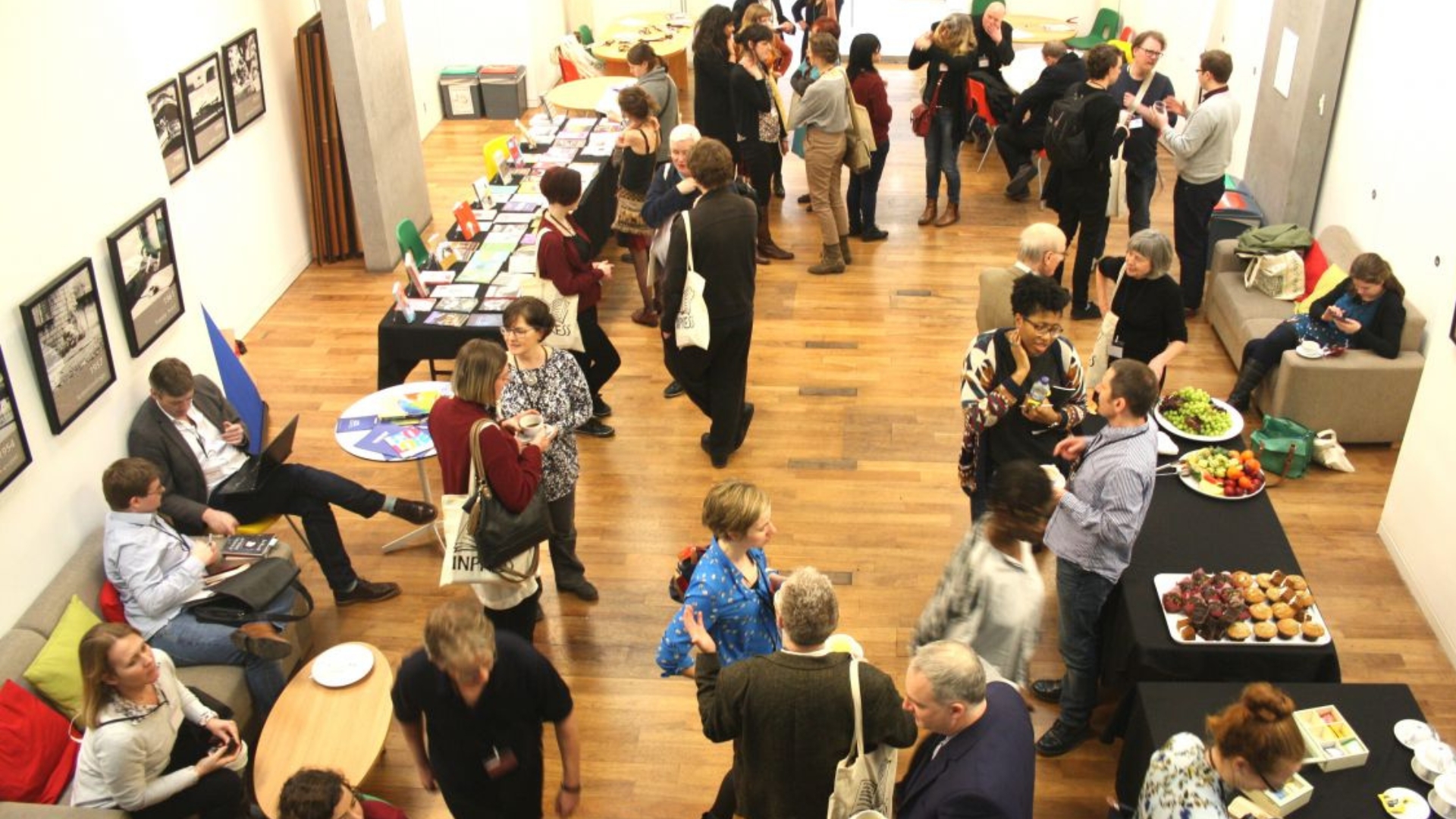You are viewing your 1 free article this month. Login to read more articles.
Small presses consider approaches to sustainability at Inpress Publishing festival
A panel on sustainability and small presses looked at the cost of "eco-friendly" books, distribution and design, as well as other barriers and opportunities faced by the industry.
The event kicked off the 2024 Festival of Publishing, run by Inpress Books on 24th January at Conway Hall in London. Publishers and other book trade professionals from across the UK gathered for a day of panel conversations and presentations on everything from inclusivity and collaborative partnerships, to TikTok and influencers.
Sophie O’Neill, managing director of Inpress Books, told The Bookseller that the goal of the festival was to "bring independent publishers together" to discuss the issues that impact them the most. "What we got from the first panel –- and what runs through the day – is that small often means you can create change a lot quicker. So, I think from the environmental panel, I came away feeling quite positive that actually there are changes that we can affect that might then affect the wider industry."
Speakers on the sustainability panel included Davinder Bedi, managing director at the distributor BookSource, Stefan Tobler, translator and founder of indie publisher And Other Stories, Derek McRae, the director of "green" printing company Seacourt, and Lloyd Sowerbutts, operations manager in East London’s Libreria bookshop.
Tobler said that And Other Stories’ produces books that "cost more per unit than they used to", but explained that this was not necessarily linked to the cost of sustainable materials. He attributed the elevated costs to the special paper that the indie press uses, but added that publishers can be sustainable while keeping costs down.
The founder of the press explained that publishers can even "save money" by making their books more sustainable. He pointed to the "Materials Index" created by the Publisher’s Association (PA), which aims to enable publishers to measure the environmental impact of various materials used in the supply chain.
However, BookSource’s managing director, Bedi, argued that "sustainability is going to cost money", explaining that those costs can be passed down to consumers.
Meanwhile, discussing the delivery of books, Sowerbutts said that a bookshop like Libreria, which is a "destination" for many customers, does not rely on next-day deliveries of new releases- even with highly anticipated titles. He explained that the booksellers are willing to have orders "collated", decreasing the amount of packaging and the journeys required to deliver books to the shop.
When it comes to damaged books, the bookseller said that he tries to create value for customers instead of returning every book that has been damaged during delivery. He said that the bookshop offers these books at a discounted price to customers, who are largely willing to buy a book that is not in perfect condition but is less expensive. The use of heavy-duty boxes was also mentioned during the event, as another way to decrease the environmental impact of the supply chain.
The panel also discussed the issue of PVC and other materials, which are used to create books with a certain texture and look. While these materials are still used by publishers, the speakers pointed to the fact that there are alternative materials available on the market, which would be more sustainable choices.
Bedi suggested the idea of a traffic light system, which would enable the industry and customers to assess the environmental footprint of books. But according to Tobler, who is on the PA’s Sustainability Taskforce, it remains challenging to accurately measure the carbon imprint of books, as various different methods of measuring are used across the supply chain.




















